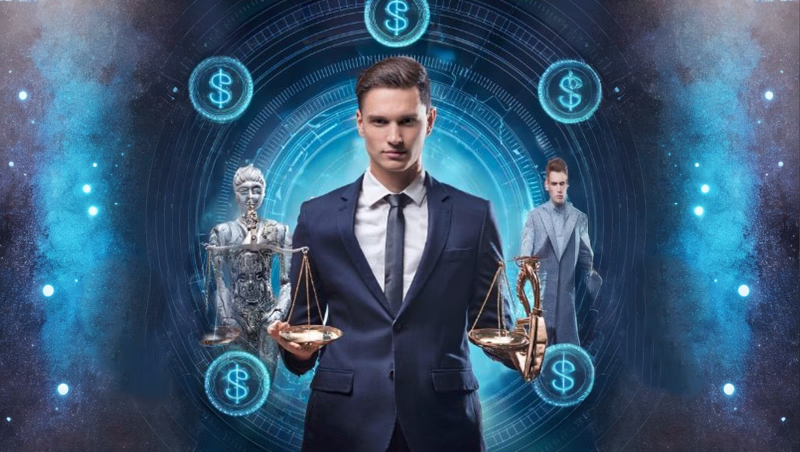A new bill regulatig the use of AI replicas has passed the California legislature, updating a law from the 1970’s. Governor Newsom is expected to sign it.

The actors union shared in a statement shortly after the passage of AB 1836 on Saturday, “For those who would use the digital replicas of deceased performers in films, TV shows, videogames, audiobooks, sound recordings and more, without first getting the consent of those performers’ estates, the California Senate just said “NO”.
AB 1836 is another win in SAG-AFTRA’s ongoing strategy of enhancing performer protections in a world of generative artificial intelligence. The passing of this bill, along with AB 2602 earlier this week, build on our mosaic of protections in law and contract.” We look forward to these bills being signed by Governor Gavin Newsom.”
The bill now heads to Newsom’s desk, where he has until the end of September to decide to sign, veto it, or allow it to become law, but without his signature. Earlier this week, the state Senate also passed AB 2602, addressing the consent requirements for digital replicas of living performers.
“The passing of this bill, along with AB 2602 earlier this week, build on our mosaic of protections in law and contract,” a spokesperson for SAG-AFTRA, the actors union, wrote in a statement.

Actors have pursued regulation of AI usage on a legislative level since the union’s historic strike last year, which largely was settled by provisions surrounding AI in its contracts with Hollywood studios and streamers.
On the federal level, bipartisan teams of lawmakers have also been working on bills for AI protections, including the NO FAKES Act, which is intended to protect actors, singers and others from having AI programs generate their likenesses and voices without their informed written consent.
The No AI Fraud Act has also been introduced, which prohibits the publication and distribution of unauthorized digital replicas, including deepfakes and voice clones.
California has a Right of Publicity law that protects against unauthorized uses of a person’s name or likeness for commercial and certain other exploitative purposes* — but as the synopsis of the new bill states:
“California law grants a property right—the “right of publicity”—to the heirs of deceased
celebrities, making it a tort (crime) to use the celebrity’s name, voice, signature, photograph, or likeness
for unauthorized commercial purposes. Excluded from the reach of this right is any “play, book,
magazine, newspaper, musical composition, audiovisual work, radio or television program,
single and original work of art, work of political or newsworthy value, or an advertisement or
commercial announcement for any of these works” that is “fictional or nonfictional
entertainment, or a dramatic, literary, or musical work.”
So for example, a fictional “biography” of famous people like The Al Yankovic Story would be legal.

This so-called “expressive works” exemption, which traces back to the 1980s, appears to require updating to address transformative advancements in artificial intelligence and digital technology.
Jimi Hendrix’s estate successfully sued over the Right of Publicity to use the rockstar’s name and likeness on merchandise, but how about an AI replica playing guitar in a commercial? There was no guidance on that before this new law.

The opponents of AB 1836 asked that the definition of digital replica be limited to highly realistic versions that could confuse the public, and that change was made. This is a new area and the law and technology are going to change over time, but many people are relieved that a first step was taken, instead of waiting even longer to face the ethical and legal issues.
We’ll keep you posted.
![]()
* Currently only 35 of the 50 United States have Right of Publicity Laws. Right of Publicity is frequently the only protection that artists who rely on their reputation to make a living have with respect to countering the negative effects of generative AI on their livelihoods. That 35 of 50 states independently created their own laws supporting this idea suggests that it would be good to have federal legislation to make it the law everywhere in the U.S. Write your congresscritter. -ed.
David Raiklen wrote, directed and scored his first film at age 9. He began studying keyboard and composing at age 5. He attended, then taught at UCLA, USC and CalArts. Among his teachers are John Williams and Mel Powel.
He has worked for Fox, Disney and Sprint. David has received numerous awards for his work, including the 2004 American Music Center Award. Dr. Raiklen has composed music and sound design for theater (Death and the Maiden), dance (Russian Ballet), television (Sing Me a Story), cell phone (Spacey Movie), museums (Museum of Tolerance), concert (Violin Sonata ), and film (Appalachian Trail).
His compositions have been performed at the Hollywood Bowl and the first Disney Hall. David Raiken is also host of a successful radio program, Classical Fan Club.












You must be logged in to post a comment.